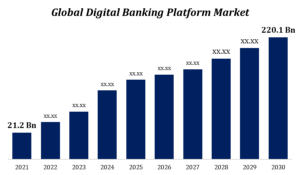The Role of RegTech in Compliance and Risk Management
n an increasingly complex regulatory environment, businesses are under immense pressure to ensure compliance and effectively manage risks. Traditional methods of handling these responsibilities, often manual and fragmented, are no longer sufficient to keep up with the rapid pace of regulatory changes and the growing volume of data that needs to be monitored. This is where Regulatory Technology, or RegTech, comes into play, revolutionizing the way organizations approach compliance and risk management.
1. What is RegTech?
RegTech refers to the use of technology, particularly software and automation tools, to help companies manage regulatory compliance and risk management more efficiently. By leveraging advanced technologies such as artificial intelligence (AI), machine learning, big data analytics, and blockchain, RegTech solutions are designed to streamline and automate the often labor-intensive processes associated with regulatory compliance.
2. Enhancing Compliance Efficiency
One of the most significant benefits of RegTech is its ability to enhance compliance efficiency. With the constant evolution of regulations across industries and jurisdictions, staying compliant can be daunting. RegTech solutions can monitor regulatory changes in real-time, automatically updating compliance processes and alerting businesses to new requirements. This not only reduces the risk of non-compliance but also frees up valuable resources, allowing compliance teams to focus on more strategic initiatives.
3. Streamlining Reporting and Documentation
Regulatory compliance often involves extensive reporting and documentation, which can be time-consuming and prone to human error. RegTech tools can automate the collection, analysis, and submission of regulatory reports, ensuring accuracy and consistency. These solutions can also store and organize compliance-related documents in a centralized, digital repository, making it easier to retrieve and audit information when needed.
4. Real-Time Risk Monitoring
Risk management is another critical area where RegTech is making a significant impact. Traditional risk management processes can be reactive, relying on historical data and periodic assessments. RegTech, on the other hand, enables real-time risk monitoring by continuously analyzing data from various sources, including financial transactions, market conditions, and regulatory updates. This proactive approach allows businesses to identify and address potential risks before they escalate into more significant issues.
5. Improving Transparency and Accountability
Transparency and accountability are crucial components of effective compliance and risk management. RegTech solutions provide organizations with a clear, auditable trail of all compliance activities, ensuring that every step of the process is documented and traceable. This transparency not only helps businesses meet regulatory requirements but also builds trust with stakeholders, including regulators, investors, and customers.
6. Reducing Costs and Increasing Agility
The manual processes traditionally associated with compliance and risk management can be costly and slow. RegTech automates many of these tasks, reducing operational costs and increasing the agility of compliance teams. By quickly adapting to regulatory changes and efficiently managing risks, businesses can stay competitive and avoid costly penalties associated with non-compliance.
7. Facilitating Global Compliance
For multinational corporations, managing compliance across different regions with varying regulatory requirements can be particularly challenging. RegTech solutions are designed to handle the complexities of global compliance by integrating data from multiple jurisdictions and automating the necessary adjustments to comply with local regulations. This global approach ensures that businesses remain compliant no matter where they operate.
8. Enhancing Cybersecurity and Data Privacy
In today’s digital age, cybersecurity and data privacy have become top priorities for regulators worldwide. RegTech plays a crucial role in helping businesses protect sensitive data and comply with data privacy regulations such as the General Data Protection Regulation (GDPR). Advanced RegTech solutions can monitor data flows, detect vulnerabilities, and ensure that data handling practices meet the highest security standards.
The rise of RegTech represents a transformative shift in how businesses approach compliance and risk management. By leveraging cutting-edge technology, RegTech solutions offer organizations the tools they need to stay compliant, manage risks effectively, and operate more efficiently in an increasingly complex regulatory landscape. As regulations continue to evolve, the role of RegTech will only become more critical, helping businesses navigate the challenges of compliance with greater ease and confidence.


































